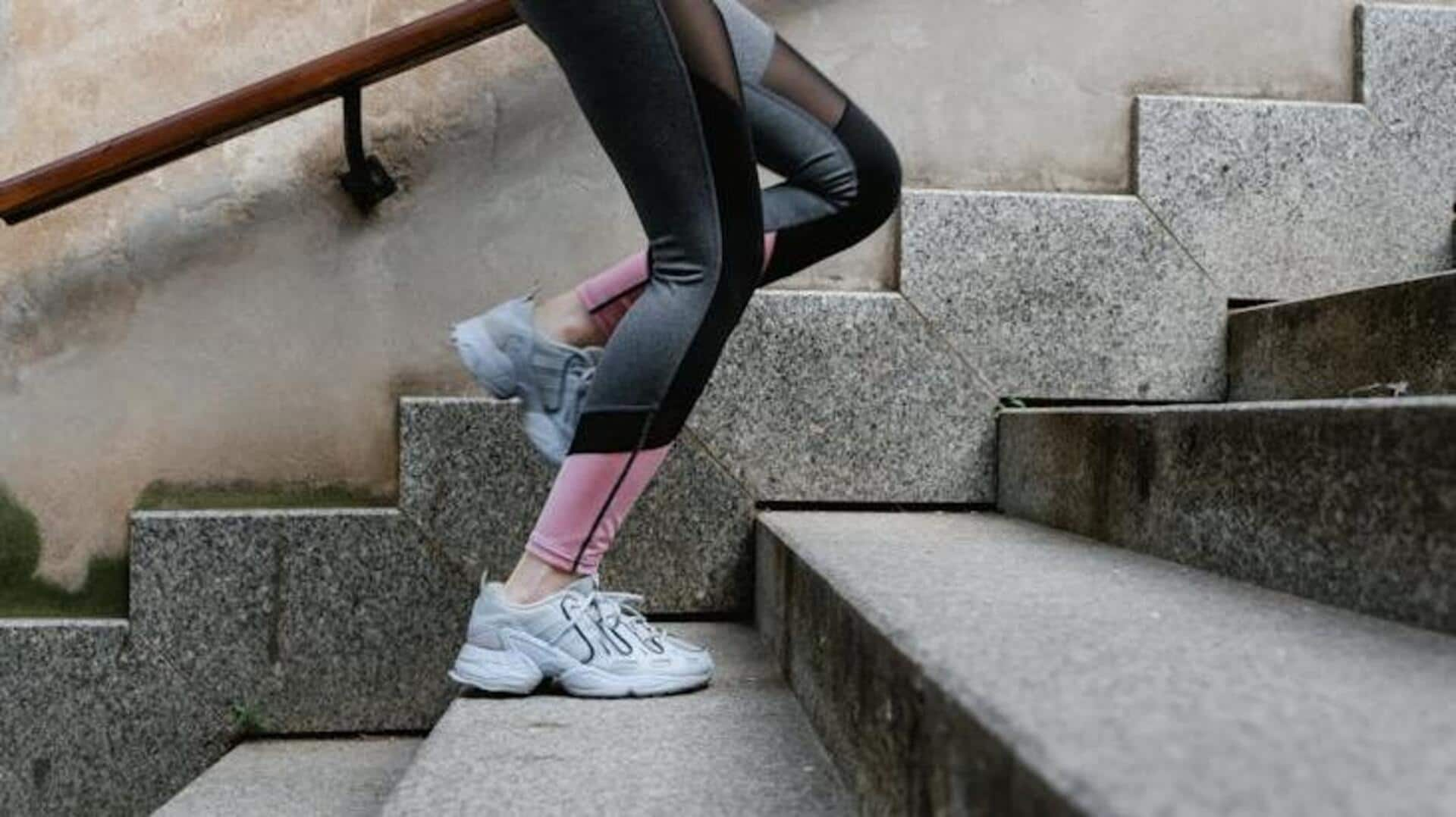
Boost your endurance with stair climbing
What's the story
Stair climbing workouts are a powerful and underrated tool for building endurance and improving overall fitness. This form of exercise leverages your body's weight against gravity, offering a full-body challenge that strengthens your legs, enhances cardiovascular health, and increases stamina. Read on to discover how integrating stair climbing into your routine can supercharge your endurance.
#1
Start with short sessions
Start by adding short stair climbing intervals to your exercise routine. Try for five to 10 minutes of steady stair climbing at a comfortable pace. This way, you're building endurance without putting too much strain on your body. Then, as you get stronger, you can extend the time and intensity of the stair climbing sessions, further enhancing your endurance and strength.
#2
Incorporate intervals for intensity
To supercharge your stair climbing workout, incorporate interval training. Simply alternate between one minute of high-intensity climbing and one minute of slow-paced recovery. This approach boosts cardiovascular health by optimizing heart rate variability and significantly ramps up calorie burn during the session. Plus, it adds an element of fun and dynamism to the exercise.
#3
Focus on form for efficiency
Maintaining proper form is key in stair climbing workouts. Make sure you're placing your entire foot on each step and pushing off with your leg muscles to drive yourself upward. Keep your back straight and your core engaged for stability. Good form not only prevents injuries but also maximizes the benefit of each step, making your workout more efficient.
#4
Cool down with gentle stretching
After a challenging stair climbing workout, always cool down with gentle stretching. Target your calves, thighs, glutes, and lower back to prevent muscle stiffness and soreness. Stretching helps your muscles recover and ensures you're ready for your next workout. This step is crucial for preserving flexibility and fostering efficient muscle repair post-exercise.